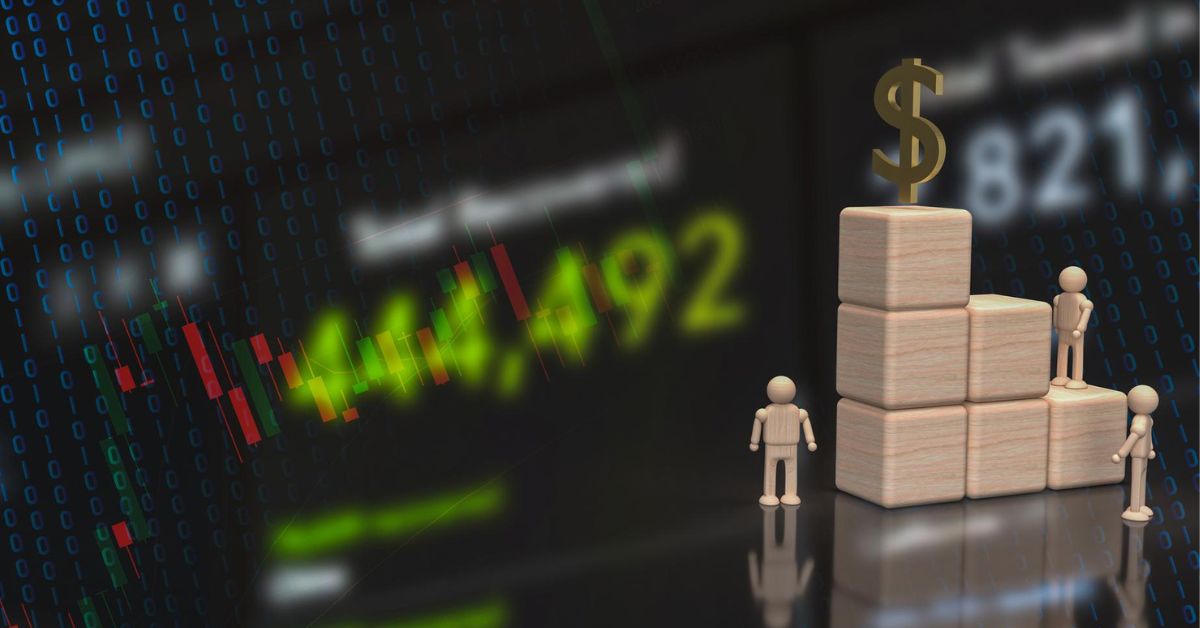Trading is more than numbers and charts. Success often depends not only on strategy but also on emotions. Therefore, understanding trading psychology is essential for anyone who wants to thrive in the markets.
In this guide, we’ll explore some key aspects of trading psychology, like how to control fear and greed, build a strong mindset, and develop discipline. Whatever your level of experience, mastering your psychology is a crucial step toward long-term success.
Trading platforms like Prime XBT offer reliable resources and tools to help traders navigate this psychological landscape. Maintaining discipline and making informed decisions is much easier when you use a trusted platform. So, join PrimeXBT today! Use promo code PRIMEOTT to receive a +7% bonus on your deposit.
What is Trading Psychology?

Mental and emotional factors influence trading decisions in trading psychology. It plays a crucial role in trading success. Emotions like fear, greed, and overconfidence can cloud judgment. In turn, it can result in impulsive decisions and significant losses.
To stay disciplined, traders must understand and master trading psychology. It ensures that decisions are based on logic rather than emotion. There is a risk that traders will exit trades too early because of fear. Greed can lead to holding positions for longer than necessary, and both can be costly.
Overconfidence can be just as dangerous. It may result in taking unnecessary risks, ignoring risks, and disregarding established trading plans. The more you know about these psychological factors, the better your decision-making is.
It leads to better trading outcomes. Successful trading isn’t just about strategy. That’s about having the right mindset to execute the plan consistently and effectively.
Why Trading Psychology is Critical
Trading psychology significantly impacts your success in the market. Even the best strategies can fail without the right mindset. Emotional reactions often lead to poor decisions, including impulsive buying, panic selling, or deviating from your plan.
Statistics show that most traders lose money. A significant reason is the inability to control emotions during trades. Developing a solid trading psychology can prevent these common mistakes. It allows you to approach trades with discipline and objectivity. Understanding your psychological tendencies is crucial. It helps you identify weaknesses and take steps to strengthen your mindset.
Many successful traders attribute their success to mastering their emotions. They prioritize psychology as much as technical and fundamental analysis. Ultimately, trading psychology is the foundation of long-term success. Without it, even the best strategies can fall apart under pressure.
Key Psychological Principles in Trading

Understanding psychological concepts is essential for traders. These concepts influence decisions and can significantly impact trading outcomes.
Fear and Greed
Fear and greed are powerful emotions in trading. It can cause hesitation, leading to missed opportunities or premature exits. Greed drives traders to take unnecessary risks. It often results in holding positions too long, hoping for more significant gains. Balancing these emotions is vital. Recognizing when they influence your decisions can help maintain a rational approach to trading.
Overconfidence
Overconfidence can lead to reckless trading decisions. Traders may ignore risks, believing their judgment is always correct. This mindset often results in taking oversized positions or disregarding market signals. It can lead to significant losses. Staying humble and cautious is essential. Recognize that markets are unpredictable and always consider potential risks.
Loss Aversion
Loss aversion is the tendency to fear losses more than value gains. Traders may hold losing trades too long, hoping for recovery, which can amplify losses. It’s essential to accept losses as part of trading and move on quickly. Understanding loss aversion helps in making objective decisions. Cut losses early to prevent small mistakes from becoming big ones.
Ego
Ego can be a trader’s worst enemy. It can drive traders to stick with bad trades to prove they’re right. This need to be right can lead to stubbornness. It often results in ignoring market signals and rational analysis. Keeping ego in check is crucial. Focus on following your trading plan, not on proving your judgment correct.
The Psychological Cycle of Trading
Trading involves a range of emotions. Each trade typically follows a predictable emotional cycle that can influence decisions.
Anticipation
Anticipation is the first stage in the trading cycle. Traders feel eager and hopeful before entering a trade, expecting favourable outcomes. This emotion can be motivating but also risky. It may lead to overconfidence or rushing into trades without proper analysis. Managing anticipation involves staying grounded. Focus on analysis and stick to your trading plan rather than letting excitement take over.
Excitement
Excitement often builds as the trade progresses. If the market moves in your favour, this emotion can intensify, fueling confidence. While excitement can feel rewarding, it’s important to remain cautious. Overconfidence can lead to impulsive decisions or unnecessary risks. To manage excitement, stay objective. Remember that market conditions can change quickly, and always be prepared for unexpected shifts.
Anxiety
Anxiety typically arises as the trade unfolds. Uncertainty about the market’s direction can cause doubt and nervousness, impacting decision-making. This emotion can lead to second-guessing your strategy. Anxiety often results in premature exits or holding positions too long. To control anxiety, focus on your trading plan. Trust your analysis and avoid making decisions based on fear or uncertainty.
Fear
Fear sets in when the market moves against your trade. It can cause panic, leading to hasty decisions and significant losses. This emotion often triggers fight-or-flight responses. Traders may exit trades too early or hold on, hoping for a reversal. Managing fear requires discipline. Accept that losses are part of trading, and focus on long-term strategy over short-term fears.
Relief
Relief is felt when the trade ends, regardless of the outcome. Traders feel a sense of closure and release from tension. While relief can be satisfying, it can also be misleading. It may encourage traders to overlook mistakes made during the trade. It’s essential to analyze each trade objectively. Use relief as a moment to review your performance and learn from it.
How to Develop Strong Trading Psychology

Developing a solid trading psychology is essential for long-term success. It requires consistent effort and a focus on mental discipline.
Set Clear Goals
Setting clear goals is the first step in developing strong trading psychology. Specific, realistic goals keep you focused and disciplined. Clear goals help you stay on track. They prevent emotional decisions by providing a roadmap for your trading activities.
Practice Patience
Patience is vital to successful trading. Waiting for the right opportunities reduces impulsive decisions and improves overall performance. Avoid the temptation to rush into trades. Practising patience ensures that you stick to your plan and make informed decisions.
Stick to Your Plan
A solid trading plan is essential. Sticking to it helps you maintain discipline and avoid emotional trading decisions. Your plan should outline entry and exit points. Following this plan minimizes the influence of emotions during trades.
Embrace Losses
Losses are a natural part of trading. Embrace them as learning opportunities rather than letting fear or frustration take control. Accepting losses helps you stay focused. It prevents emotional reactions and ensures you make rational decisions in future trades.
Maintain Objectivity
Objectivity is crucial in trading. Focus on data and analysis, not emotions or market noise, to make rational decisions. Keeping emotions in check is vital. Objectivity helps you evaluate trades based on logic, leading to more consistent results.
Regularly Review Performance
Reviewing your performance is essential. Regularly analyzing trades helps identify emotional patterns and areas for improvement. This practice enhances self-awareness. Understanding your emotional triggers allows you to refine your trading strategy and mindset.
Use Journaling
Keeping a trading journal is a valuable tool. It helps you track emotions, decisions, and outcomes, providing insights for improvement. Journaling allows for reflection. By reviewing your entries, you can identify emotional patterns and develop stronger trading psychology.
Focus on Continuous Learning
Continuous learning is vital in trading. The market evolves, and ongoing education helps you adapt and improve your trading skills. Stay informed about market trends and strategies. Continuous learning sharpens your skills and strengthens your trading psychology.
We at the On Tilt Trading Store offer specialized trading psychology coaching to help traders master their mindset. Our coaching focuses on developing mental discipline for success. We can help you identify and overcome psychological barriers. Check out our store today and use promo code OTT10 to receive 10% off your order.
Conclusion
Mastering trading psychology is essential for long-term success. Emotions such as fear, greed, and overconfidence can have a significant impact on your trading decisions. When you understand and manage these emotions, you can trade more rationally and effectively. Developing a solid trading psychology takes time, but it’s worth it.
Are you tired of losing money because of panic selling, FOMO, or overtrading? We recommend the Vestinda trading app to avoid emotional decisions. It offers automated crypto trading strategies, helping you trade with confidence and discipline. Vestinda will guide your trades so you can focus on what really matters.



